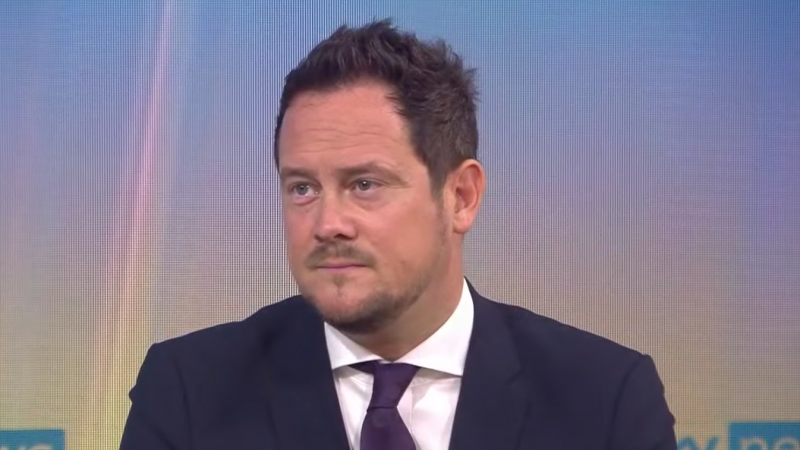
Labour’s Stephen Morgan has warned that the country is facing a “national emergency” as households brace for a rise in the energy bill price cap but argued that the government and Tory leadership candidates are “nowhere to be seen”.
In a Sky News interview this morning, 24 hours before the regulator Ofgem announces level at which the energy price will be set from October 1st, the shadow minister told viewers that Labour has a “plan to tackle these issues head on”.
“Labour’s set out a plan, as you know £29bn of investment, a benefit of £1,000 for every household. I think that will make a real difference,” Morgan said.
The opposition party announced last week that it would freeze gas and electricity prices immediately, keeping the energy price cap at its current level of £1,971 until April – a move it said would save the typical household £1,000.
Labour said the proposal could be paid for in part by making changes to the windfall tax, including backdating the tax to include excess profits made since January and closing a loophole allowing tax relief on investment in the North Sea.
“Yesterday, I was with a charity in my own constituency that were saying people are really feeling the pinch and they’re hearing from people that they’ve not heard from before. It’s really unsettling for the British public right now and the government is nowhere to be seen on these issues,” Morgan said this morning.
Asked why the party has not decided to announce more targeted support, the shadow minister said the rise in energy bills is “affecting everyone”. He also highlighted Labour’s proposal to scrap additional premiums paid by usually lower-income customers who pay for their gas and electric through prepayment meters.
He argued the government needs a short-term solution to the crisis, but also a “longer-term solution” by making sure that homes are insulated. Labour called on the government earlier this week to reverse “12 years of failure” by adopting its plan to insulate 19 million homes as part of a “national mission” to reduce bills.
He added: “The Conservative Party candidates for the leadership of the country are nowhere to be seen on these issues and I think we’re in a national emergency. The government has got to make a decision.”
Labour’s Ed Miliband accused the Conservatives of being “missing in action” on the cost-of-living crisis earlier this month after the government failed to agree any new support measures in a meeting with energy company executives.
The Treasury revealed that Chancellor Nadhim Zahawi and the energy firms had agreed to “work closely” over the coming weeks to “ensure that the public, including vulnerable customers, are supported”. But Boris Johnson told attendees it would fall to his successor as Prime Minister to make “significant fiscal decisions”.
Tory leadership frontrunner Liz Truss has expressed strong opposition to expanding the windfall tax, telling attendees at one Tory leadership hustings: “I absolutely don’t support a windfall tax [on the energy companies] because it’s a Labour idea, and it’s all about bashing business.”
Asked last week whether she backed the idea of freezing energy bills, the Foreign Secretary said: “What I worry about is putting a sticking plaster on this to say we will find the money but be in the same situation in six months’ time.”
Rishi Sunak said on Wednesday that he did not think Labour’s plan is the “right plan”. The former Chancellor added: “I think it’s not right to say that it’s fully costed, because I think it’s been widely criticised for its credibility of that costing.”
"It's really unsettling for the public right now, and the govt are nowhere to be seen."
Labour's @StephenMorganMP says the cost of living crisis is a "national emergency" and needs a long-term solution.https://t.co/yiDU6iFlRQ
📺 Sky 501, Virgin 602, Freeview 233 and YouTube pic.twitter.com/PN2Op7I5dz
— Sky News (@SkyNews) August 25, 2022




More from LabourList
‘Cutting Welsh university funding would be economic vandalism, not reform’
Sadiq Khan signals he will stand for a fourth term as London Mayor
Starmer or Sarwar: Scottish Labour MSPs and MPs split over Keir Starmer’s future